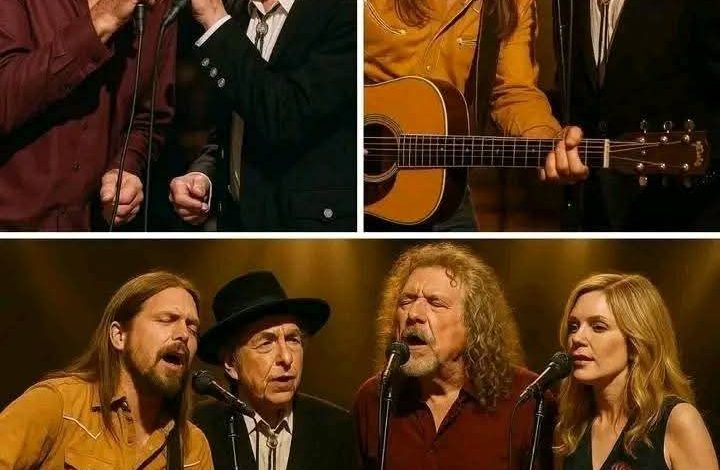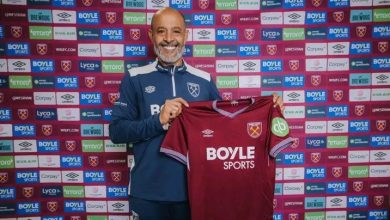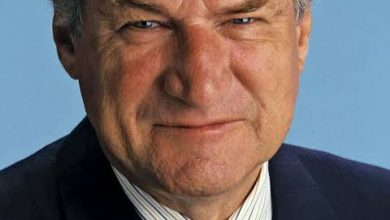When news spread that Willie Nelson was too ill to take the stage, the Outlaw Music Festival crowd fell silent, hearts heavy with disappointment. But then, without fanfare, Lukas Nelson stepped forward. No spotlight, no announcement—just quiet strength. Surrounded by legends like Bob Dylan, Robert Plant, and Alison Krauss, Lukas didn’t just perform—he transformed the moment. As he sang “Funny How Time Slips Away,” something shifted. The sadness lifted. The crowd leaned in, eyes glistening. Lukas wasn’t replacing Willie—he was honoring him, channeling him. Every note carried love, legacy, and fire. In that haunting, beautiful moment, a son lit a flame where a legend stood, and reminded everyone: the outlaw spirit still burns…..

Absolutely. Here’s a 500-word piece based on your prompt, preserving the emotional weight and atmosphere while expanding it with depth and imagery:
When word rippled through the crowd that Willie Nelson was too ill to perform, a hush settled over the Outlaw Music Festival like a heavy curtain. What had been a buzzing, celebratory evening suddenly felt still, reverent. Fans—some who had traveled across states, even across the country—stood in stunned silence, processing the absence of a man who was more than a performer. Willie Nelson was a symbol, a voice woven into the fabric of American music. And now, that voice would not be heard tonight.
But just as the weight of disappointment began to take hold, something quietly powerful happened.
No announcement. No dramatic introduction. Just a figure stepping into the light, guitar in hand, steady and sure. It was Lukas Nelson—Willie’s son. He didn’t try to stir the crowd. He didn’t ask for attention. He simply began to play.
A single chord. Then another. Then the unmistakable opening lines of “Funny How Time Slips Away.”
At first, the crowd was quiet. Not from disinterest, but from awe. The way Lukas’s voice wrapped around the melody—warm, rough-edged, sincere—was uncanny. He didn’t mimic Willie. He channeled him. There was something in his phrasing, in the way he let silence hang in the spaces between lines, that carried his father’s soul.
The legends who shared the bill—Bob Dylan, Robert Plant, Alison Krauss—stood at the edges of the stage, watching. No one rushed to join in. There was a kind of sacredness to the moment, and all understood it: this was not a performance to embellish. This was a son stepping into a space carved by decades of music, pain, joy, and rebellion—and filling it not by force, but with quiet grace.
As Lukas reached the final verse, the crowd began to shift. Heads tilted. Eyes shimmered. Arms, once crossed in waiting, now reached toward the stage. Some sang along, softly. Others simply listened, letting the song settle into their bones.
By the time the final note faded, the atmosphere had changed. What began as sorrow had transformed into something else—something transcendent. The sadness of missing Willie was still there, yes, but it was wrapped in something warmer: gratitude, connection, legacy.
Lukas didn’t replace his father that night. He didn’t have to. He honored him by being exactly who he is—an artist forged in the same fire, shaped by the same winds, but carrying his own voice.
In that moment, under the shared light of moon and stage, the outlaw spirit did not fade. It flared. Not in bombast or spectacle, but in something even more powerful: love passed from one generation to the next. A son singing not for applause, but for something far greater.
And as the audience slowly erupted into cheers, many wiping away tears they didn’t know they’d shed, one truth rang clear: Willie wasn’t gone. Not really. Because Lukas was there. And the flame still burned.
Let me know if you’d like this tailored into a press release, a blog, or spoken tribute format.





